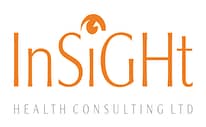Healthcare Quality Management
At InSiGHt, we have a system’s view of healthcare quality management and have expertise in addressing its different interrelated components. Our quality management activities involve leveraging best practices and frameworks to integrate and align data-driven strategies and processes in the healthcare system for governance, planning, service delivery and patient outcome. Our quality improvement (QI) initiatives are data and objective-driven, resulting in significant improvements towards set standards.
We adopt practical quality management principles and utilize tested quality improvement tools to improve processes and efficiencies in healthcare systems and contribute to measurable health outcomes. Our team have vast knowledge and experience in healthcare quality improvement and entrenches a culture of continuous improvement in our projects.
Our key QA/QI personnel are qualified and experienced in quality
improvement program implementations.
They have the required qualifications, such as master’s degrees, certifications in quality improvement (e.g., Six Sigma and ISO 9001), and experience in several quality improvement program designs and implementations.
IHC is ISO 9001 certified, an Institutional Member of the International Society for Quality in HealthCare (ISQua), and an accredited provider of continuing professional development by the Nigerian Medical and Dental Council (MDCN). As a licensee, we use SafeCare standards and digital platforms amongst other standards to improve healthcare quality in Nigeria.
Our Experiences
Quality Leadership Development:
We draw on Juran’s Trilogy to build leadership capacity and structures for quality planning, control, and improvement.
Quality Improvement Support:
We employ relevant methodologies such as the Model for Improvement (MFI), the Plan, Do, Study, and Act (PDSA) cycle, and the Define, Measure, Analyze, Improve, and Control (DMAIC) approach. Here, we prioritize quality improvement through continuous assessment, planning and implementation, guided by tailored quality improvement plans.
Capacity Assessments and Training:
we reinforce important concepts, practices, and processes and introduce new knowledge and best practices to the health workforce.
